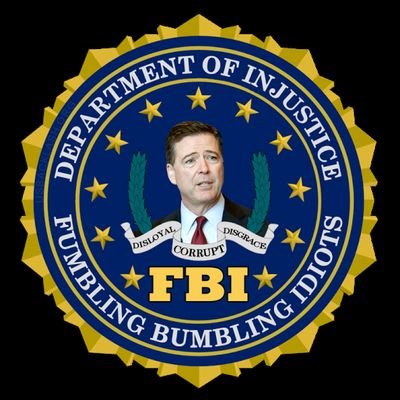Biden Campaign to Disgraced FBI Director Comey: Thanks But No Thanks for Endorsement

Joe Biden’s presidential campaign garnered yet another unwanted endorsement on Super Tuesday but they basically said “thanks but no thanks.”
Former FBI Director James Comey publicly backed the former vice president in the Democratic presidential primary as Super Tuesday voting got underway, saying President Trump “fears” Biden.
“Voted in first Democratic [Party] primary to support party dedicated to restoring values in WH. I agree with @amyklobuchar: We need candidate who cares about all Americans and will restore decency, dignity to the office,” Comey tweeted.
“There is a reason Trump fears @JoeBiden and roots for Bernie. #Biden2020.”
Voted in first Dem primary to support party dedicated to restoring values in WH. I agree with @amyklobuchar: We need candidate who cares about all Americans and will restore decency, dignity to the office. There is a reason Trump fears @joebiden and roots for Bernie. #Biden2020
But Biden campaign rapid response director Andrew Bates essentially rejected the endorsement from a figure who remains polarizing within the Democratic Party, despite his outspoken criticism of Trump.
“Yes, customer service? I just received a package that I very much did not order. How can I return it, free of charge?” Bates tweeted.
Yes, customer service? I just received a package that I very much did not order. How can I return it, free of charge? https://twitter.com/Comey/status/1234899712991518722 …
Comey was FBI director under the Obama-Biden administration. He was fired by Trump in May 2017.

Comey has told reporters and lawmakers that he had a private meeting with President Trump in order to give him a warning before his inauguration about “salacious” statements contained in the Fusion GPS Trump-Russia dossier, which former British MI6 spy Christopher Steele compiled while on the payroll of the DNC and Clinton campaign.
“It was brought up privately, because the goal of the private session was to alert the incoming President to this piece of it that we thought was about to become public,” according to a statement he made to GOP House of Representatives’ Rep. Jim Jordan, R-Ohio.
Comey and the heads of the intelligence community agencies, including then-CIA Director John Brennan and then-Director of National Intelligence Director James Clapper, both of whom admitted they despised Trump, gave an initial briefing to Trump about the findings of an investigation into Russian interference in the 2016 presidential campaign. Comey agreed to have a private meeting with Trump afterwards to share the information from the dossier.
The watchdog group, Cause of Action Institute, reported that it got the documents from the Federal Bureau of Investigation through an ongoing Freedom of Information Act (FOIA) lawsuit. The lawsuit was initiated when the FBI and Department of Justice failed to comply with the original FOIA applications.
The first of the FOIA document productions, the Comey email records, are just the start of uncovering the true nature and extent of Comey’s use of private email to conduct federal law enforcement business that put classified information at risk of being intercepted by hackers from other nations or crime gangs. Ironically, this is the exact charge made against former presidential candidate Hillary Clinton when she served as Secretary of State. And she got off Scot-Free.
“The problems associated with using personal email for government work are obvious, but those caught in the act often try to act as if they had no idea they were doing anything wrong or they justify their behavior as merely incidental,” stated CoA Institute officials in their report.
CoA Institute first addressed the problems that resulted from government employees using private email for official business in a 2012 journal article: Gmail.gov: When Politics Gets Personal, Does the Public Have a Right to Know?
In the years following the publication of that article, CoA Institute has revealed how upper-echelon government officials can use personal email accounts or messaging apps for government business to sidestep transparency and avoid legal or disciplinary action for transgressions.
“Government overreach cannot be fought effectively if the process and enforcement are kept in the dark. That’s why CoA Institute is committed to holding the government accountable to transparency laws and has brought cases to uncover the private email use of officials such as former Secretary of State Colin Powell, former Secretary of State Hillary Clinton, and now, former FBI Director James Comey,” CoA Institute officials argue.


